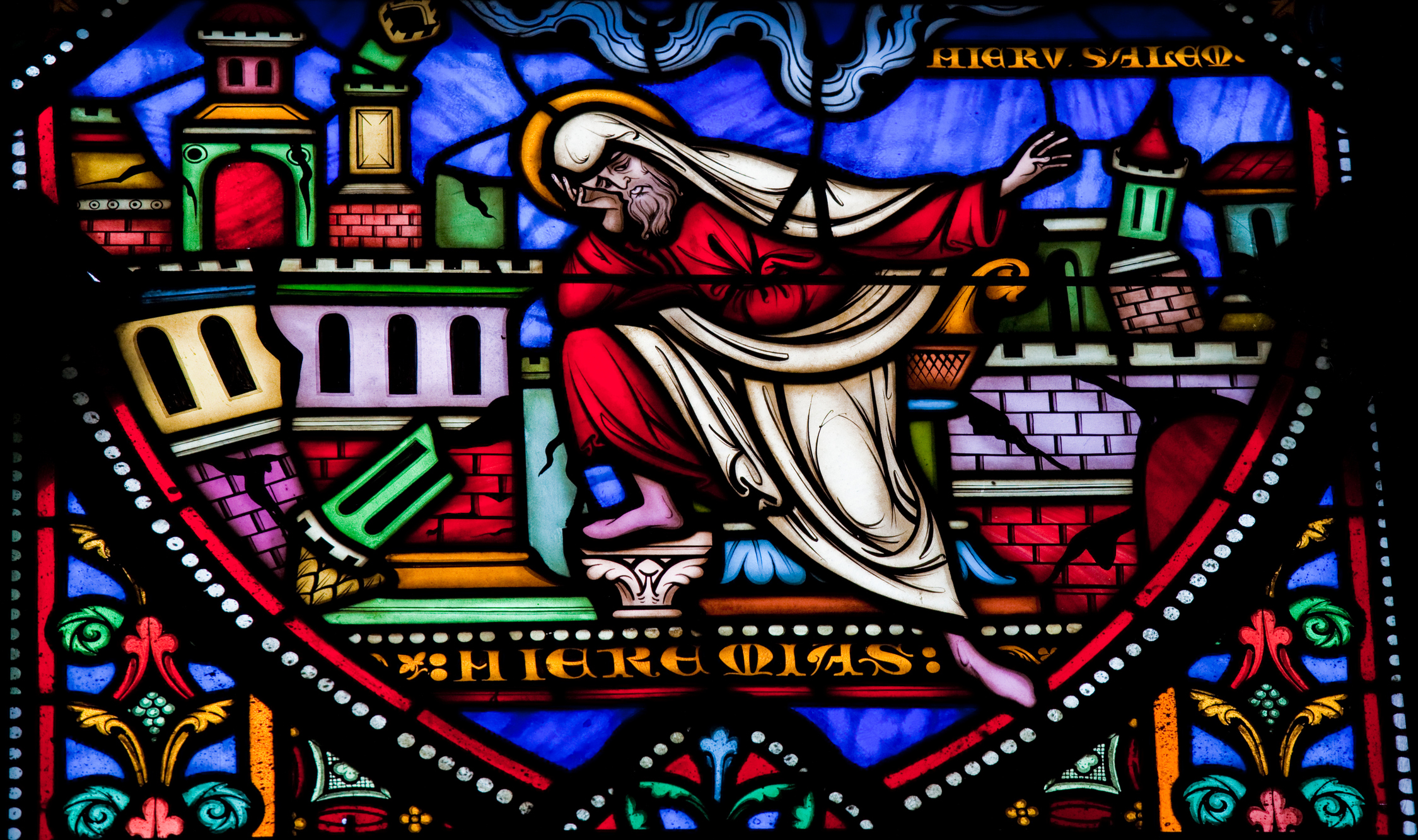By Dr. Mark Scott
 It would seem that when God wants to make a prophet, he first takes him to the desert and crushes him. Tears make a prophet better than laughter does. The crucible of suffering is the best birthing room of a prophet. Jeremiah would have been glad to continue the family business of being a priest (Jeremiah 1:1). He did not volunteer for the office of a prophet.
It would seem that when God wants to make a prophet, he first takes him to the desert and crushes him. Tears make a prophet better than laughter does. The crucible of suffering is the best birthing room of a prophet. Jeremiah would have been glad to continue the family business of being a priest (Jeremiah 1:1). He did not volunteer for the office of a prophet.
Jeremiah has been called “the weeping prophet” for good reason. Besides writing the book that bears his name, he also wrote Lamentations, which is filled with tears. He, along with the prophet Habakkuk, was to get God’s people ready for their captivity in Babylon. This was not an easy job. He prophesied during the reigns of two of the worst kings of Judah—Jehoiakim and Zedekiah (Jeremiah 1:3). Phony priests like Pashhur (20:1-6) and compromised prophets like Hanaiah (28:1-4) stood opposed to Jeremiah. In addition to this, the people at large pushed back on Jeremiah’s prophetic word by laying claim to the temple as a good luck charm (7:1-15) and by issuing death threats against Jeremiah (11:21-23). The shepherds of Israel had caved in on their responsibilities to the sheep (23:1-8), and the king even burned Jeremiah’s scroll (36:23). No wonder he wanted to give up (20:7, 8).
But not all was doom and gloom for the weeping prophet. Some of his ministry was carried out during the reign of good King Josiah (1:2). Even when he wanted to give up he was unable to do so due to the fire in his bones (20:9). He saw a new day and a new covenant dawning for his nation (31:1-40).
The Call
Jeremiah 1:4, 5
The phrase, The word of the Lord, occurs more in Jeremiah than any other Bible book. It underlines the authoritative nature of his message. This call was not Jeremiah’s doing (see also 2 Peter 1:20, 21).
The call of Jeremiah is underlined by three things—his creation, his sanctification, and his commission. God reminded Jeremiah that he formed him. This Hebrew word means “to squeeze into shape.” The word is also used to speak of how a potter forms a pot from clay (Jeremiah 18:1-23). While God uses parents to cocreate, ultimately God knits our bones together in the womb (Psalm 139:13).
The second aspect of Jeremiah’s call was his sanctification. God said, “I set you apart.” This is the normal expression for “holiness” and is translated “consecrated” by the English Standard Version. To be used by a holy God, one must be holy. God made this decision before Jeremiah was born. Did Jeremiah have a choice or was his path predestined? The wording of this passage makes one think the latter. But we realize later that Jeremiah exercised his choice to stay in prophetic ministry (Jeremiah 20:1-9).
The final aspect of Jeremiah’s call was his commission. God appointed him. This Hebrew word meant “to give, to deliver, or to grant.” God so loved that he gave Jeremiah to the nations. Indeed his prophetic ministry went beyond Judah (Jeremiah 46–51).
The Objection
Jeremiah 1:6-8
It is not uncommon for prophets to feel unqualified (Exodus 4:10; Amos 7:14, 15). Jeremiah objected to his call on two bases: First, he did not know how to speak. Second, he felt too young for such a calling (see also 1 Timothy 4:12). The Hebrew word can mean “babe,” but here no doubt it means child or servant.
God countered Jeremiah’s objections by restating the call and by reminding Jeremiah of his presence and promise of rescue. Jeremiah would not go this alone. The God who is ever near would stay close to Jeremiah (Psalm 139:7-12). God did literally rescue him—once when he was in a pit (Jeremiah 38:7-13) and finally in escaping to Egypt (Jeremiah 43).
The Task
Jeremiah 1:9, 10
Just as Isaiah had his sins removed to be of service for God (Isaiah 6:1-7), so Jeremiah had to have the Lord’s message placed in his mouth to be of service for God. The task was to appoint (literally “set”) Jeremiah over nations and kingdoms. This task was given in six words within three couplets. Two-thirds of his ministry was negative (uproot, tear down, destroy, and overthrow). But to know the truth and not tell people that truth is most unloving. One-third of his ministry was positive (build and plant). To give hope is at the very least kind.
Jeremiah’s famous letter to the exiles (Jeremiah 29) both defined reality and cast a vision for the future. Jeremiah used his tears to grow a new future for the people of God.
Dr. Mark Scott teaches Preaching and New Testament at Ozark Christian College in Joplin, Missouri.
Based on International Sunday School Lesson, © 2012, by the Lesson Committee. Scripture quotations are from the New International Version ©2011, unless otherwise indicated.
As you apply today’s Scripture study to everyday life, read Engage Your Faith by David Faust and the correlating Evaluation Questions.



Comments: no replies